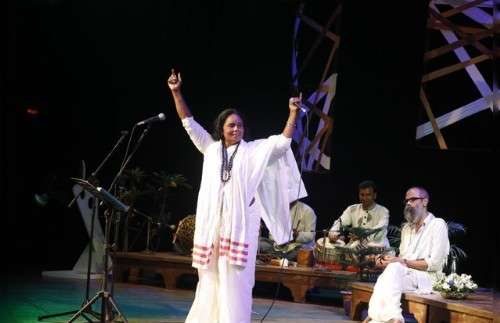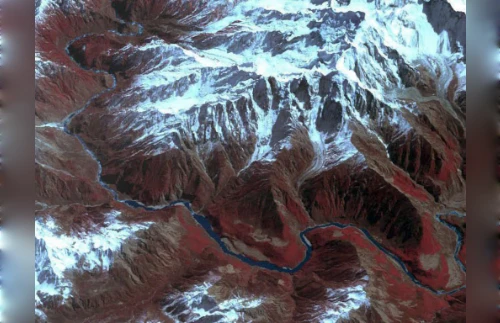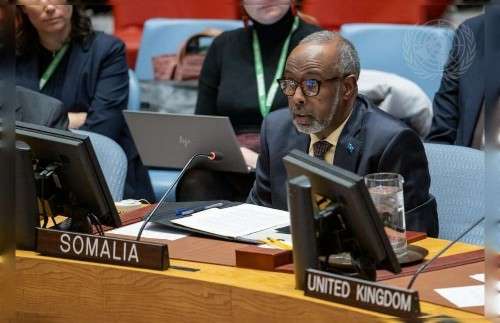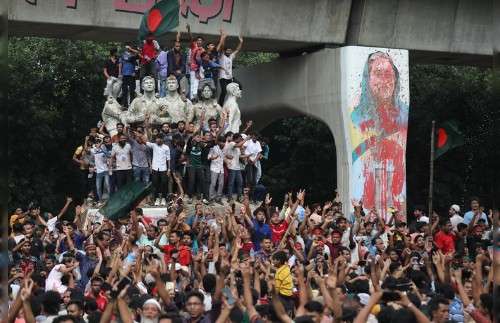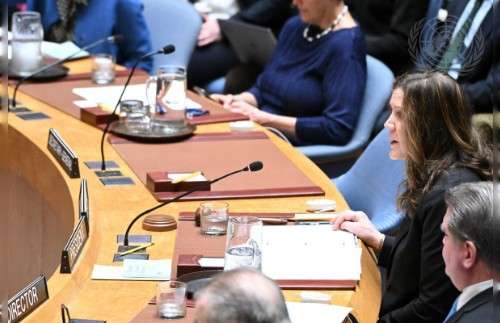Bangladesh analysts, activists question deposed long-time leader’s ability to recover from pro-democracy protests in 2024.
Sharifuzzaman Pintu/Dhaka
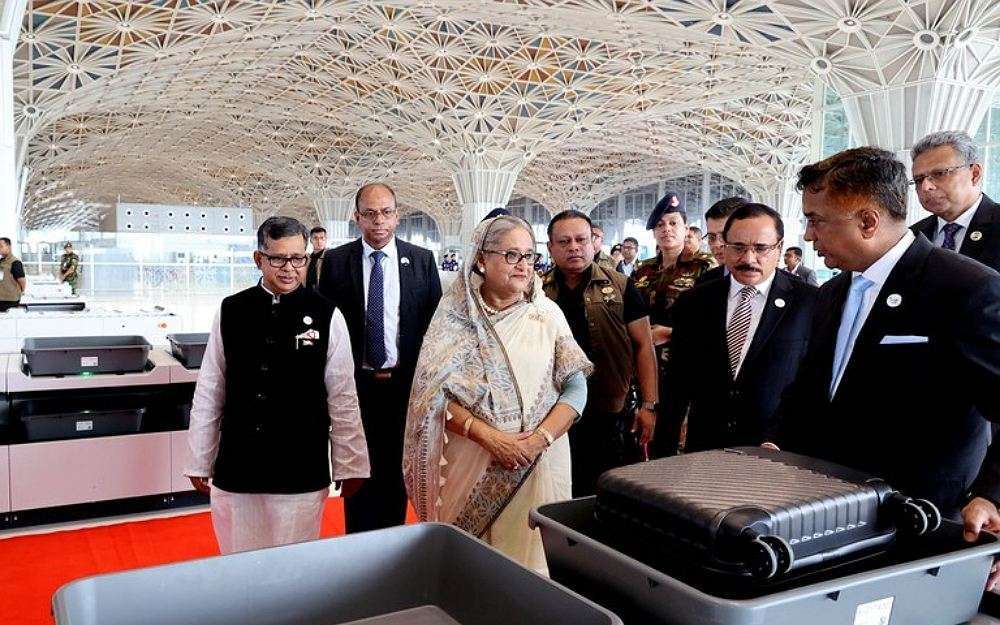
The once formidable Awami League has faded from the limelight in Bangladesh, leading some political analysts to question the party’s future amid uncertainty about whether it will be allowed to participate in elections again.
The AL, which led Bangladesh to independence in a vicious war against Pakistan in 1971, held power for 15 consecutive years under Sheikh Hasina until a student-led revolt toppled her in early August.
Now, there’s a growing debate about whether the party and former Prime Minister Hasina, who led Awami for 45 years, can make a comeback in Bangladeshi politics in the wake of her downfall.
Abdul Latif Masum, a political analyst and former professor of government and politics at Jahangirnagar University, said the party had previously faced a crisis caused by Hasina’s six-year exile following the assassination of her father, Bangladesh founding President Sheikh Mujibur Rahman, and other family members in 1975. It also survived the anti-dictatorship movement of the 1990s.
“Actually, this crisis is different from all the previous incidents, where Hasina has put herself, the party and countless leaders and workers in existential crisis by fleeing. So in my opinion, the future of Awami League is zero and Sheikh Hasina’s future is double zero,” he said.
Others pointed to a lack of remorse from Hasina and Awami leaders over alleged abuses that were committed during her rule, which grew more autocratic toward the end.
“Despite the corruption, misgovernance and human rights abuses, neither Sheikh Hasina nor others in the party has shown regret or apologized,” Mujahidul Islam Selim, former president of the Communist Party of Bangladesh, told BenarNews.
When asked if he or other Awami League members would apologize, A.F.M. Bahauddin Nasim, the party’s joint general-secretary, leveled counter-accusations of genocide and power-grabbing against interim government leader Muhammad Yunus and other leaders in the interim government.
Yunus took over the reins of government on Aug. 8, three days after Hasina fled to India, where she remains in exile.
Since then, Bangladesh’s International Crimes Tribunal issued arrest warrants in October against Hasina and AL associates for alleged crimes against humanity. More recently, the government filed a formal request for Hasina’s extradition from India in late December.
Bahauddin Nasim emains defiant despite facing possible arrest.
“Many were killed and publicly hanged during the movement. People have seen those atrocities. The big question is whether the public would forgive them instead,” he told BenarNews from an undisclosed location.
“The Awami League is a people’s party. We remain humble before them and act appropriately at the right time.”
While Hasina does not have a presence on social media, the Awami League posted a New Year’s message attributed to her on its X page. In it, she expressed hope for peace and prosperity in 2025 while lamenting that “the likelihood of achieving these hopes has significantly diminished.”
In addition, the statement said, the “unconstitutional overthrow of the legitimate government in July 2024, through local and international conspiracies disguised as student protests, has resulted in an illegal, undemocratic group seizing state power.
“A once globally praised Bangladesh, known for its stable law and order, communal harmony, and robust socio-economic development, now finds itself grappling with chaos. The rule of law has collapsed, with crimes such as murder, robbery, and looting becoming everyday occurrences.”
Student leaders concerned
Student leaders who spearheaded protests that led to Hasina’s fall have expressed strong reservations about her party rejoining politics or participating in elections.
“The Awami League conducted three consecutive illegal elections. How can they be allowed another chance without first declaring those elections invalid,” Samantha Sharmin told BenarNews. She serves as spokeswoman for the Jatiya Nagorik Committee (JNC), which is comprised of protest leaders and which formed on Sept. 8.
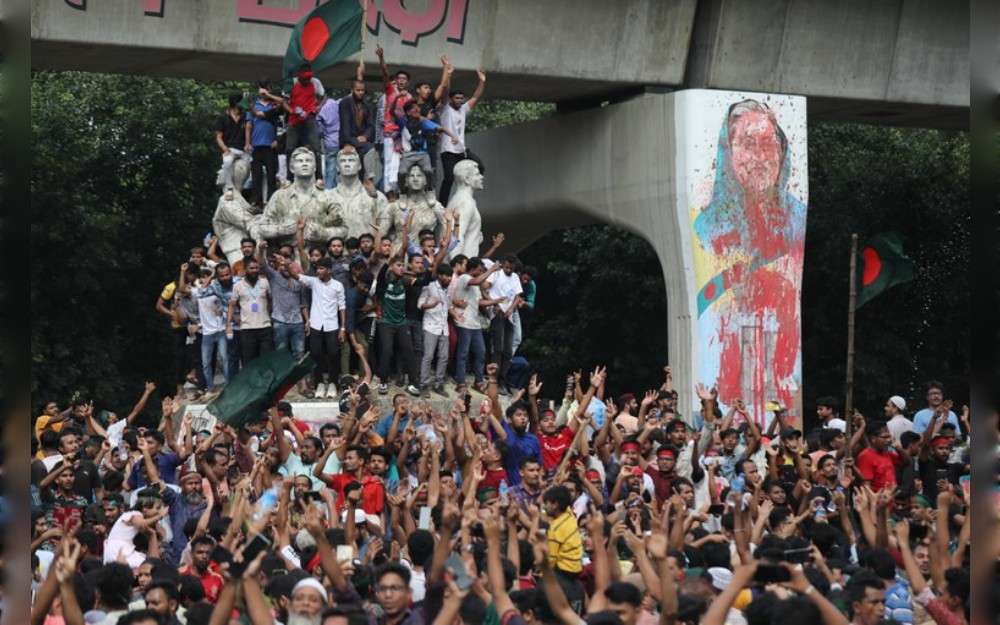
Hasnat Abdullah, convener of the pro-democracy student movement, has repeatedly emphasized that the Awami League must face trial before any discussion of election participation.
Despite those calls, A.M.M. Nasir Uddin, the chief election commissioner, said unless the government or the courts banned AL, there would be no legal obstacle to the party participating in elections.
Analyst Latif Masum said Awami members were delusional in their hope for a miraculous return led by Hasina.
“The anger and resentment surrounding the party are so intense that if they attempt a return, resistance will be overwhelming,” he told BenarNews.
‘People miss Sheikh Hasina’
Still, Hasina has support with AL.
“Since Aug. 5, ongoing injustices and anarchy have boosted the Awami League’s popularity,” said party leader Bahauddin Nasim, who added, “People miss Sheikh Hasina.”
In addition, some leaders of the rival Bangladesh Nationalist Party (BNP) have called for AL to participate in upcoming elections – Yunus recently called for a national vote to occur at the end of 2025 or by March 2026. The BNP, the main opposition party during Hasina’s rule, has been pressing the Yunus-led government to pave the way for a general election.
“We expect the election to be participatory. If anyone is to be excluded, it will be the people’s decision. However, anyone who commits a crime will face justice, and the government is responsible for that,” BNP Standing Committee member Hafiz Uddin Ahmed told BenarNews.
Sharmin, the JNC spokeswoman, argued that just as the AL could not gain legitimacy in elections or parliament without the BNP, the same held true for the BNP – it could not gain acceptance without the Awami League.
“With political unity, the Awami League could be banned directly. However, some political parties are opposing this, creating a dangerous situation. Those opposing the ban have strayed from the spirit of the mass uprising,” she said.
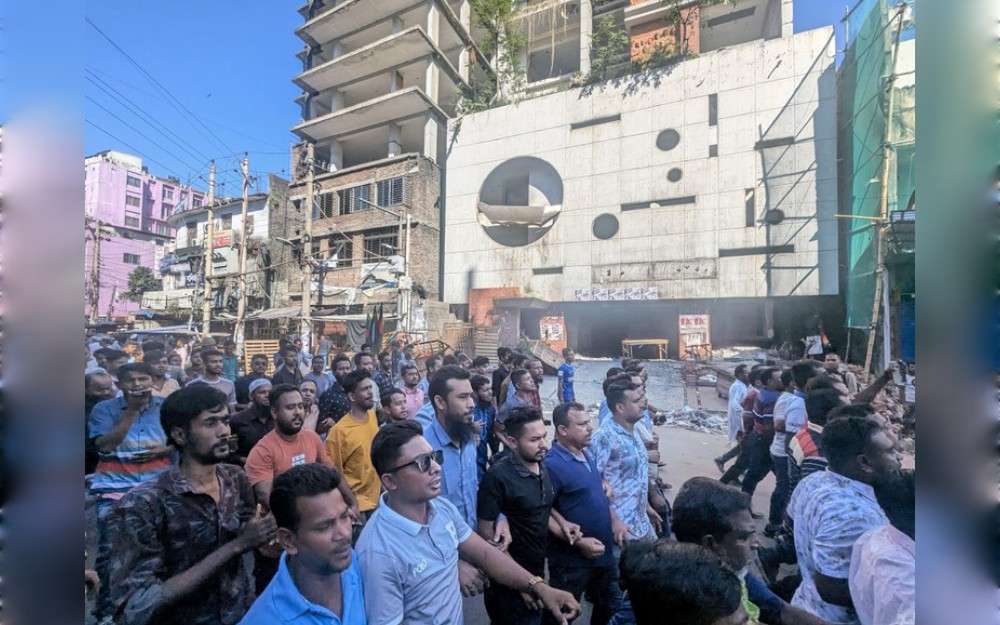
Syed Anwar Hossain, historian and political analyst, said an AL return to power should not be discounted.
“The interim government continues past mistakes, worsening the human rights situation, leaving people afraid to speak up. With sky-high prices for essentials, ordinary people are suffering, making the change of a ruler irrelevant to them. These kinds of failures of the current or successive regime will create a path for the Awami League to return,” he told BenarNews.
“While Sheikh Hasina’s human rights violations must be addressed, the Awami League should still be allowed to participate in politics,” Hossain said.
He pointed out that fallen rulers around the world, including in Bangladesh, have returned with great influence.
“Whether Sheikh Hasina succeeds or not remains uncertain, but the Awami League will endure – a truth many are reluctant to acknowledge,” he said.
Copyright ©2015-2024, BenarNews. Used with the permission of BenarNews.






